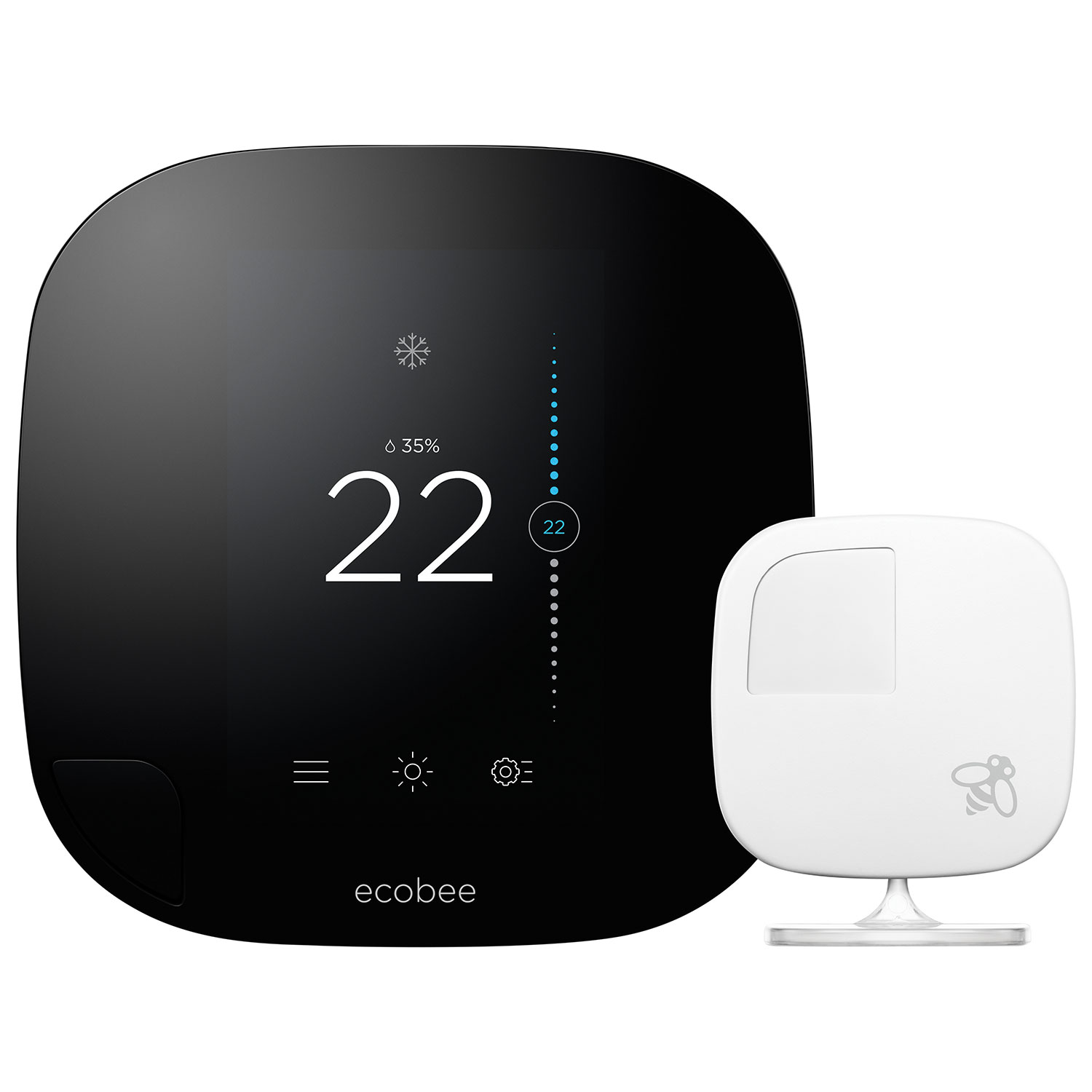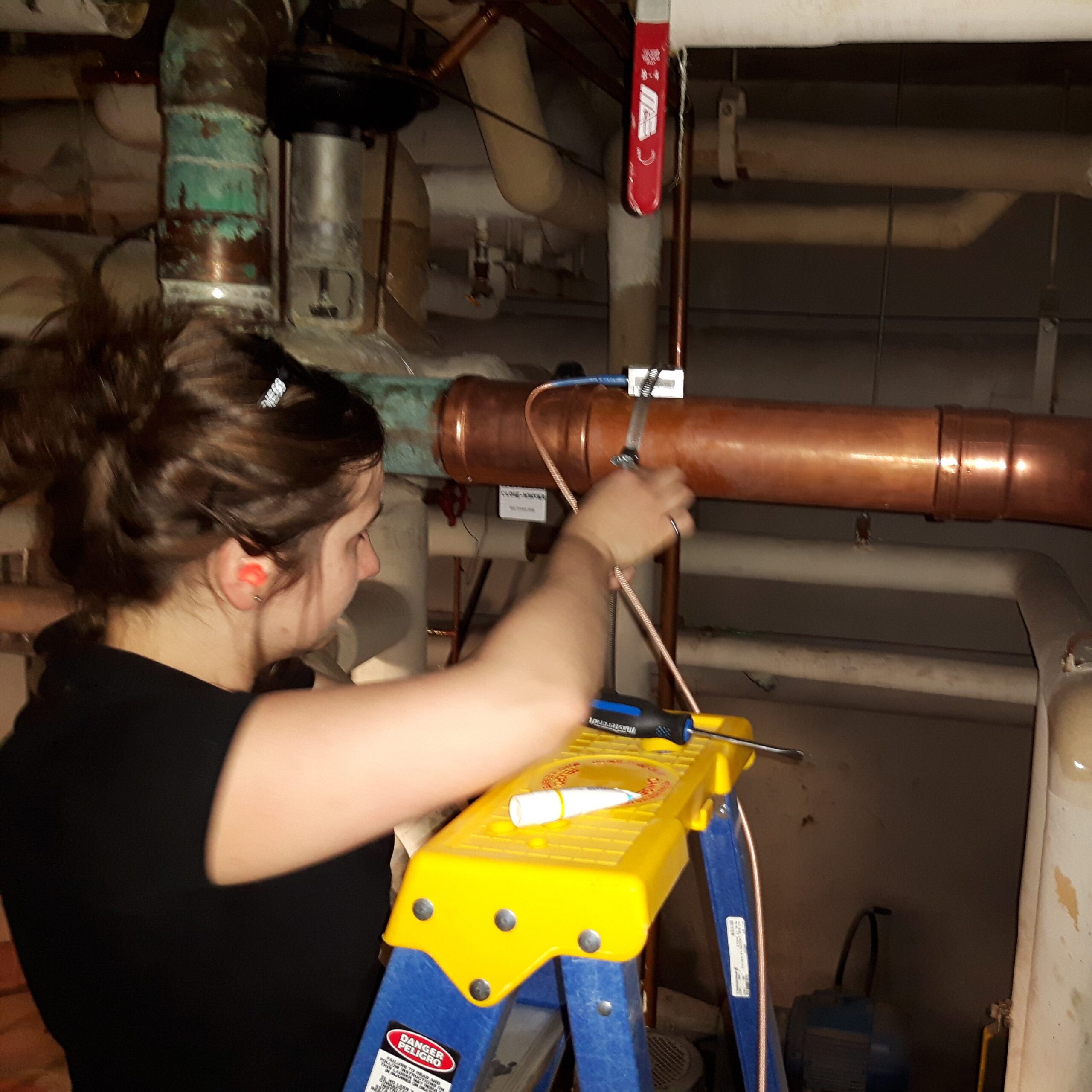Impacts of Smart Thermostat Use in Multi-Unit Residential Buildings on Occupant Behaviour, Thermal Comfort, and Energy Performance
This project explored how replacing conventional programmable thermostat with smart thermostat could impact energy performance, thermal comfort and occupant behaviour in high-rise residential buildings.
Status: Completed
Research themes: Energy and GHG emissions Health and comfort
Research areas: Building design and retrofits for performance improvement; Wellbeing and comfort in the built environment; Human-Building Interaction; HVAC control and component characterization and optimization
Project Objective
Smart thermostats provide new opportunities to manage household energy use and improve thermal comfort. This was the first-ever field based evaluation of smart thermostat technology in high-rise multi-unit residential buildings. The objective was to explore how various control strategies could be used to improve energy performance and occupant behaviour and thermal comfort in this building sector.
Approach
54 suites in two contemporary high-rise residential buildings were equipped with smart thermostats for a one year period during which the thermostat control strategy alternated between following a set program and smart occupancy-based controls. Over this one year period, energy submetering of the central systems was conducted along with surveys of the occupants.
Findings
Over-conditioning of suites occurred frequently in both buildings, resulting in thermal discomfort for occupants. Occupancy-based thermostat control reduced suite-level HVAC demand but this reduction was limited by the pre-existing short runtimes. Tuning of the central space conditioning system is recommended in order to take full advantage of occupancy-based controls in suites. Overall, the load shifting strategy was ineffective and yielded occupant overrides, however, substantial shifting of suite HVAC load from on-peak to off-peak periods was observed in a subset of suites.
Publications
Journal Publications
Stopps, H., Touchie, M.F. “Load shifting and energy conservation using smart thermostats in contemporary high-rise residential buildings: Estimation of runtime changes using field data,” Energy and Buildings, 255, (2022) 111644. doi: 10.1016/j.enbuild.2021.111644
Stopps, H., Touchie, M.F. “Smart Choice or Flawed Approach? An Exploration of Connected Thermostat Data Fidelity and use in Data-Driven Modelling in High-Rise Residential Buildings” Journal of Building Performance Simulation, (2021), doi: 10.1080/19401493.2021.1927189
Stopps, H., Touchie, M.F. “Perceptions of thermal conditions in contemporary high-rise residential buildings under different temperature control strategies” Science Technology and the Built Environment. (2021). doi: 10.1080/23744731.2021.1929465
Stopps, H., Touchie, M.F. “Residential smart thermostat use: An exploration of thermostat programming, environmental attitudes, and the influence of smart controls on energy,” Energy and Buildings, 238, (2021) 110834. doi: 10.1016/j.enbuild.2021.110834
Stopps, H., Huchuk, B., Touchie, M.F., O’Brien, W. “Is anyone home? A critical review of occupant-centric smart HVAC controls implementations in residential buildings” Building and Environment, 187 (2020) pp.107369. doi: 10.1016/j.buildenv.2020.107369
Stopps, H., Touchie, M.F. “Managing thermal comfort in contemporary high-rise residential buildings: Using smart thermostats and surveys to identify energy efficiency and comfort opportunities,” Building and Environment, 173 (2020) pp.106748. doi: 10.1016/j.buildenv.2020.106748
Conference Publications
Stopps, H., Touchie, M.F., “Reduction of HVAC System runtime due to occupancy-controlled smart thermostats in contemporary multi-unit residential buildings suites,” in IAQVEC 2019 Conference Proceedings, Bari, Italy, 5-7 September 2019
Stopps, H., Touchie, M.F., “Occupant Perceptions of Thermal Comfort in Contemporary Condominium Buildings,” in Buildings XIV International Conference Proceedings, Clearwater FL, 9-12 December 2019



